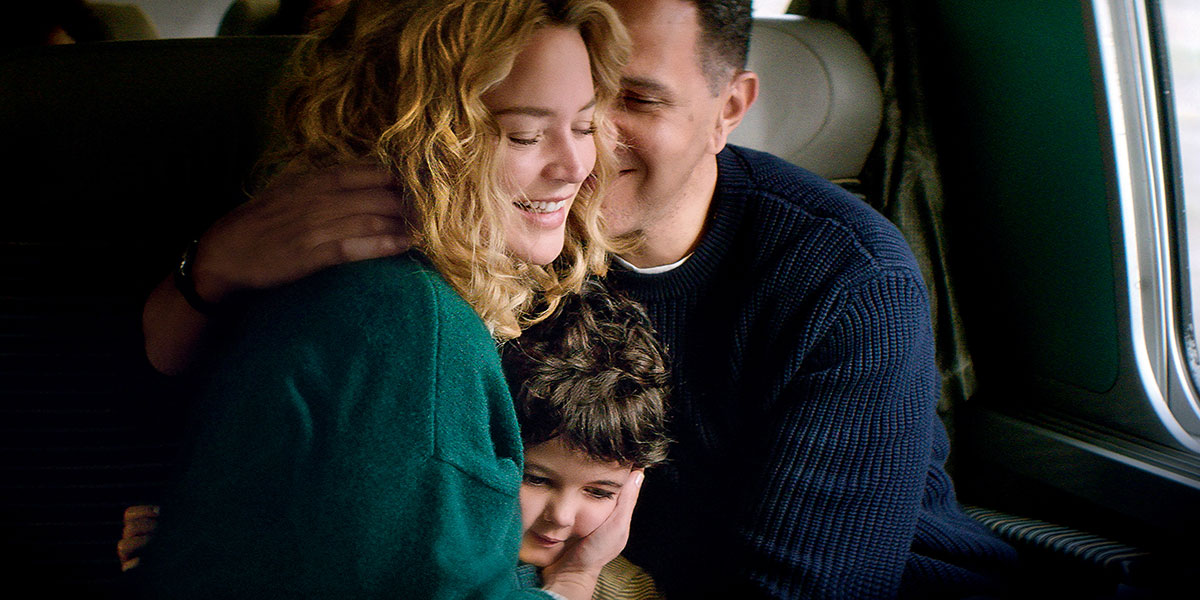Directed by Rebecca Zlotowski, the French drama Other People’s Children has a simple plot linked with complex ideas. Following Rachel (Virginie Efira), a 40-year-old childless, single teacher, the film watches her fall in love with Ali (Roschdy Zem), a man with a young daughter named Leila. Rachel, always wanting kids of her own, becomes connected to Leila, forcing her to confront her own views on motherhood. Zlotowski’s film grows into a study of overheard conversations and biting words from kids, those who don’t know any better.
Zlotowski makes it clear that Rachel, unfortunately, will never be Leila’s birth mother. She invades the space that this newly formed family has made, often shooting them from above as if the audience is looking on to private moments. Rachel feels substantial: a real person with hobbies, friends, a loving family, a stable job. She smiles with her whole face and laughs with her whole body, throwing herself into the joy that’s thrust upon her.
Her relationships with Ali and Leila follow suit, with enough specificity to rise above regular romantic fare. In one such moment, Rachel and Ali make a sandwich, becoming the bread while Leila is the meat, cheese, lettuce, and tomatoes all rolled into an adorable child. She bonds with her supposed step-daughter, even receiving the compliment of “she looks like you” from a passerby. All of these joyous exchanges can come crashing down with a single statement, though. This love feels conditional, easily broken, existing in an unrealistic state of being. Zlotowski has a keen understanding of the fragility of love and of the pain that can be caused by those unmeaning to do you harm.
And suddenly Other People’s Children becomes heartbreaking. Rachel’s perfect life shatters in an instant just by hearing Leila say that she wants her mommy. It’s not melodramatic or absurdist in any way. If anything, it forces a difficult level of reality by showing an impossible situation, one that Rachel will lose over and over again.
Efira, last seen by most audiences in Benedetta, gives another wondrous performance as Rachel. She’s overflowing with untapped love, directionless in how to proceed in her desire to be a mother. The Belgian actor keeps the film together, grounding it with real emotional stakes and drawing a portrait of a woman cornered by her own body, the love of her life, and societal pressure.
It’s refreshing to see none of these characters are particularly awful people. They make decisions they believe are best for their loved ones. They exhibit selfishness, but their hearts break for one another. They intend to help others, to positively impact their colleagues, friends, and students. In the end it becomes hard to know who to blame when conflict arises. Fault should be placed, but Zlotowski knows that other people’s children aren’t always simple or easy.
Frederick Wiseman shows up in a bit part as Rachel’s doctor, monitoring her body clock and throwing out wisdom with each diagnosis. It’s a pleasure to see him acting here, living and seemingly thriving in his home country of France. He adds to a strong supporting cast of very French actors who fit neatly into this world.
Zlotowski’s fifth feature excels thanks to a compelling lead performance from Efira, giving insight into one woman’s relationship to motherhood. Her wants, her love, and her losses are all on display, built up only to be let down. Baked in a stern reality, the drama never loses that central, necessary thread.
Other People’s Children played at Sundance 2023 and will be released by Music Box Films.

